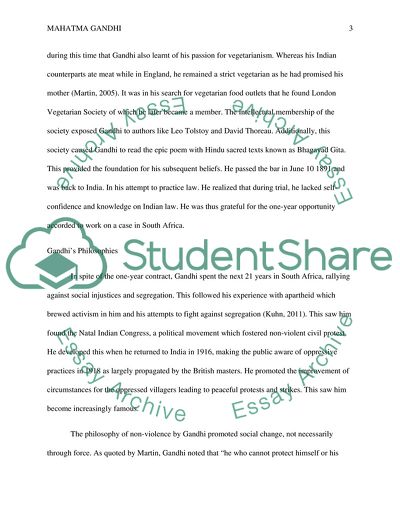Cite this document
(The Philosophy and Life of Mahatma Gandhi Essay Example | Topics and Well Written Essays - 1750 words, n.d.)
The Philosophy and Life of Mahatma Gandhi Essay Example | Topics and Well Written Essays - 1750 words. https://studentshare.org/philosophy/1830711-mahatma-gandhi
The Philosophy and Life of Mahatma Gandhi Essay Example | Topics and Well Written Essays - 1750 words. https://studentshare.org/philosophy/1830711-mahatma-gandhi
(The Philosophy and Life of Mahatma Gandhi Essay Example | Topics and Well Written Essays - 1750 Words)
The Philosophy and Life of Mahatma Gandhi Essay Example | Topics and Well Written Essays - 1750 Words. https://studentshare.org/philosophy/1830711-mahatma-gandhi.
The Philosophy and Life of Mahatma Gandhi Essay Example | Topics and Well Written Essays - 1750 Words. https://studentshare.org/philosophy/1830711-mahatma-gandhi.
“The Philosophy and Life of Mahatma Gandhi Essay Example | Topics and Well Written Essays - 1750 Words”. https://studentshare.org/philosophy/1830711-mahatma-gandhi.


